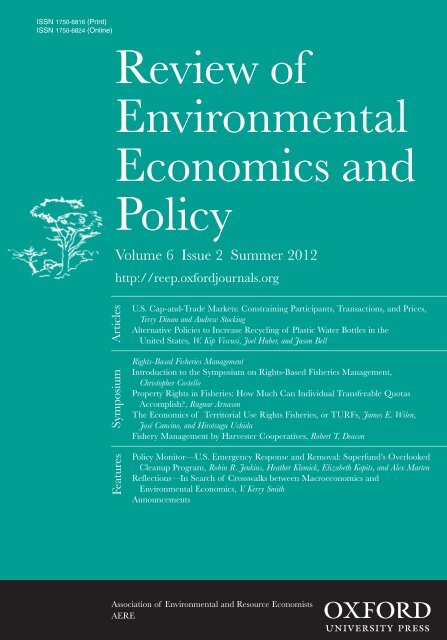An Examination of Recent Revealed Preference Valuation Methods and Results
IF 6.6
3区 经济学
Q1 ECONOMICS
引用次数: 10
Abstract
In order to support the use of economics in environmental management, revealed preference studies continue to advance the measurement of environmental values. Together with integrated assessment models, these values are ever more useful for environmental management. This article briefly reviews revealed preference methods, which infer values from observed behavior. A new emphasis in this literature has been to exploit the intertemporal properties of panel data to value the environment. These panel methods have great potential, but the literature needs to develop theoretical and empirical best practices. The article also examines the latest empirical results across several environmental issues: climate change, pollution, and conservation. Valuation methods continue to be applied to additional issues and locations. Looking toward the future, technical change and economic growth suggest that additional pollutants and global-scale effects will emerge. Valuation methods need to keep pace with these new developments to be able to address the key environmental management challenges of the future.最近揭示的偏好评估方法和结果的检验
为了支持经济学在环境管理中的应用,揭示偏好研究继续推进环境价值的测量。与综合评估模型一起,这些价值观对环境管理越来越有用。本文简要回顾了揭示偏好的方法,这些方法从观察到的行为中推断价值。这篇文献中的一个新重点是利用面板数据的跨期特性来评估环境。这些小组方法有很大的潜力,但文献需要发展理论和实证的最佳实践。文章还考察了几个环境问题的最新实证结果:气候变化、污染和保护。估价方法继续适用于其他问题和地点。展望未来,技术变革和经济增长表明,将出现更多的污染物和全球范围的影响。估价方法需要跟上这些新发展的步伐,才能应对未来的关键环境管理挑战。
本文章由计算机程序翻译,如有差异,请以英文原文为准。
求助全文
约1分钟内获得全文
求助全文
来源期刊
CiteScore
10.80
自引率
0.00%
发文量
25
期刊介绍:
The Review of Environmental Economics and Policy fills the gap between traditional academic journals and the general interest press by providing a widely accessible yet scholarly source for the latest thinking on environmental economics and related policy. The Review publishes symposia, articles, and regular features that contribute to one or more of the following goals: •to identify and synthesize lessons learned from recent and ongoing environmental economics research; •to provide economic analysis of environmental policy issues; •to promote the sharing of ideas and perspectives among the various sub-fields of environmental economics;

 求助内容:
求助内容: 应助结果提醒方式:
应助结果提醒方式:


